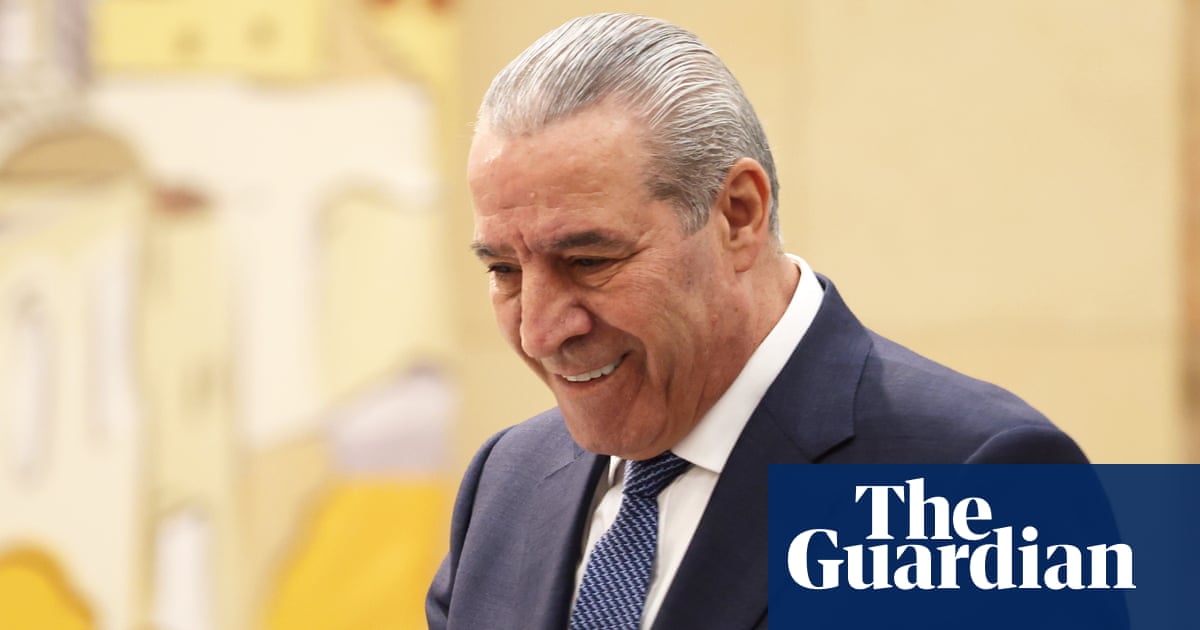Palestinian presidentMahmoud Abbason Saturday named a veteran aide and confidant as his new vice-president. It’s a major step by the ageing leader to designate a successor.
The appointment of Hussein al-Sheikh as vice-president of the Palestine Liberation Organisation (PLO) does not guarantee he will be the next Palestinian president. But it makes him the frontrunner among longtime politicians in the dominant Fatah party who hope to succeed the 89-year-old Abbas.
The move is unlikely to boost the image among many Palestinians of Fatah as a closed and corrupt movement out of touch with the general public.
Abbas hopes to play a major role in postwar Gaza. He has been under pressure from western and Arab allies to rehabilitate the Palestinian Authority, which has limited autonomy in parts of the Israeli-occupied West Bank. He has announced a series of reforms in recent months, and last week his Fatah movement approved the new position of PLO vice-president.
The PLO is the internationally recognised representative of the Palestinian people and oversees the western-backed Palestinian Authority. Abbas has led both entities for two decades.
Under last week’s decision, the new vice-president, coming from the PLO’s 16-member executive committee, would succeed Abbas in a caretaker capacity if the president dies or becomes incapacitated.
That would make him the frontrunner to replace Abbas on a permanent basis, though it is not a guarantee. The PLO’s executive committee would need to approve that appointment, and the body is filled with veteran politicians who see themselves as worthy contenders.
The Palestinian Authority, meanwhile, would have a separate caretaker leader, Rawhi Fattouh, the speaker of the Palestinians’ non-functioning parliament. But within 90 days, it would have to hold elections. If that is not possible, the new PLO president would probably take over the position.
Al-Sheikh, 64, is a veteran politician who has held a series of top positions over decades, most recently as the secretary-general of the PLO’s executive committee for the past three years. He spent 11 years in Israeli prisons in his youth and is a veteran of the Palestinian security forces – experiences that could give him credibility with Palestinian security figures and the broader public.
Now he finds himself in a strong position to shore up his power.
He is Abbas’s closest aide and, most critically, maintains good working relations with Israel and the Palestinians’ Arab allies, including wealthy Gulf countries. As Abbas’s point man with Israel, al-Sheikh is responsible for arranging coveted travel permits for Palestinians, including VIP leaders, giving him an important lever of power over his rivals.
However, polls show al-Sheikh, like most of Fatah’s leadership, to be deeply unpopular with the general public. This week’s decision behind closed doors by the PLO’s ageing leadership is likely to reinforce its image as being stodgy and out of touch.
The most popular Palestinian, Marwan Barghouti, is serving multiple life sentences in an Israeli prison, and Israel has ruled out releasing him as part of any swap for Israeli hostages held in Gaza by theHamasmilitant group.
As Israel’s war with Hamas drags on, with talk by US president Donald Trump and Israeli prime minister Benjamin Netanyahu of uprooting Palestinians in Gaza to relocate them elsewhere, al-Sheikh will be under mounting pressure to unite the Palestinian leadership.
The PLO is a rival to Hamas, which won the last national elections in 2006 and is not in the PLO. Hamas seized control of Gaza from Abbas’s forces in 2007, and reconciliation attempts have repeatedly failed.
In a 2022 interview with the Associated Press, al-Sheikh defended his unpopular coordination with Israel, saying there was no choice under the difficult circumstances of the occupation.
“I am not a representative for Israel in thePalestinian territories,” he said at the time. “We undertake the coordination because this is the prelude to a political solution for ending the occupation.”
